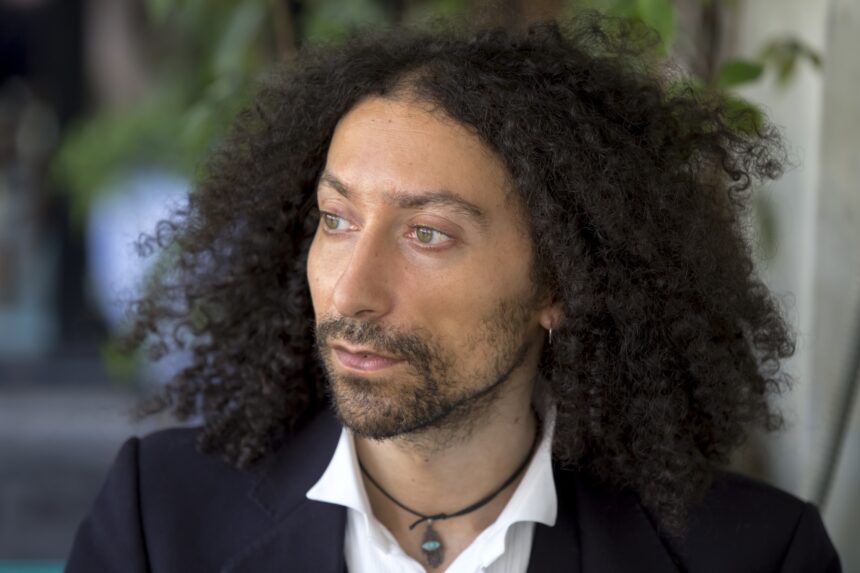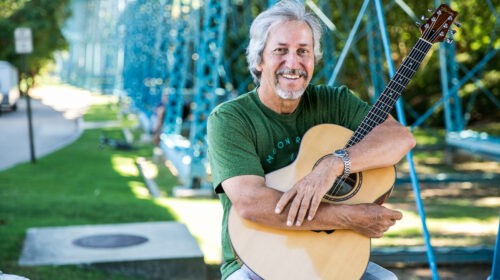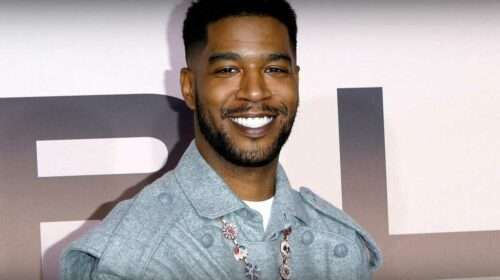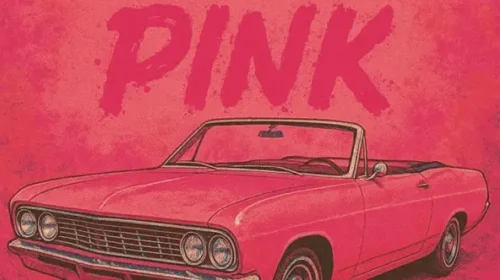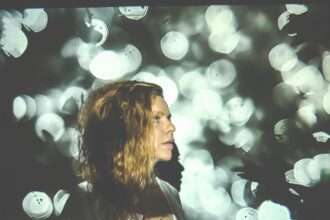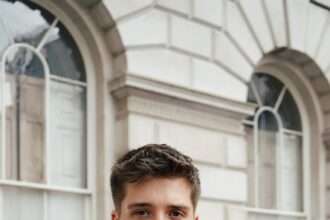Fabio Cicala is an artist whose music blends personal reflection with spiritual depth. In his latest interview, he delved into his track “The Words I Didn’t Say,” part of his upcoming project “Rude Awakening.” The song, recorded at the prestigious Abbey Road and Soho Sonic Studios in London, offers a unique mix of baroque, neoclassical, and progressive rock influences. Inspired by an intense, fleeting connection with a woman he met on a film set, the song captures Cicala’s emotional struggle of love at first sight, mingled with the complexities of his personal relationships.
Cicala’s journey from Italy to London has shaped both his music and worldview. As a self-taught musician with a background in visual arts, his creative process is deeply intertwined with his spiritual growth. He describes his music as a sound diary, reflecting a journey of personal evolution. “The Words I Didn’t Say” represents a mix of minimalism and vibrational sounds, created with the goal of helping listeners relax and reflect on their own lives.
Drawing on a mix of classical and progressive influences, Cicala’s music takes listeners on a journey through different emotional and personal landscapes. He aims to inspire others to find their authentic selves and face the challenges life throws their way. As he puts it, his music is about guiding people to explore their own personal growth while embracing their true selves, even when it feels like the world is pushing against them.
While the financial and promotional challenges of being a solo artist are significant, Cicala embraces them as opportunities for growth, both artistically and professionally. The support he receives from his hometown in Italy, combined with the satisfaction of pursuing his dreams despite adversity, fuels his drive. Looking ahead, Cicala’s work continues to evolve as he explores new ways to connect with his listeners, offering a reflective and inspiring space for those who are willing to listen. His upcoming release, “The Words I Didn’t Say,” set to drop on February 14, 2025, promises to be a deeply personal and transformative experience for both him and his audience.
In this exclusive interview, Fabio Cicala takes us on a personal journey through his latest single, “The Words I Didn’t Say.” Reflecting on love, personal growth, and spiritual exploration, Cicala delves into the inspiration behind the track, which forms part of his Rude Awakening project. Recorded at the iconic Abbey Road and Soho Sonic Studios, the song blends classical guitar with hypnotic, minimalistic sounds, offering listeners a chance to relax and meditate. Drawing from a profound encounter with a girl he met on a film set, Cicala weaves a story of unspoken love, emotional struggles, and self-awareness, blending various genres like baroque, neoclassical, and progressive rock. Join us as we explore the artistry, spirituality, and personal journey behind “The Words I Didn’t Say.”.Check out the interview below
“The Words I Didn’t Say” feels deeply personal and reflective. Can you tell us about the inspiration behind this song and what it represents in your journey as an artist?
“The Words I Didn’t Say”, it’s part of a 9 songs project called “Rude Awakening”, recorded between 2019 and 2020 at the Abbey Road Studios and the Soho Sonic Studios in London, a sound diary of only classical guitar tuned with A 432 Hz, the collection of my first compositions. I harmonized different music genres in minimal and vibrational sounds, at times hypnotic, giving birth to a musical fabric that helps the listeners to relax and meditate. This song was born because of a love at first sight for a girl I met on a film set, whose aura almost struck me instantly! I recall the mutual fascination between us, but at the time, I didn’t allow myself to pursue the promising idyll, because I was already in a relationship.
In fact, I even did my best to sabotage the interactions! It was my stance towards this novelty, who seemed to undermine my emotional certainties, probably a more psychological than emotional struggle, against the watering down of relationships. Love at first sight, can be thought of not just like the embryo of a pleasant idyll, but also as a guide to the elements and attitudes missing from our lives at that moment, recognized in the other person, or triggered by them. I don’t believe the train only passes once, but we are the ones who attract a suitable one, as we progress on our journey of personal and spiritual growth.
The more we try to become aware of all the choices we make, even the most simple ones, the more we are able to give the right weight and the right place to the experiences and the people who cross our paths. From a musical perspective, I remember once I was rehearsing for a gig and thought to practice George Michael’s “Careless Whispers”. But to my surprise, my fingers and my mind went somewhere else a few seconds into the song… I was thinking of that girl, so I decided to write a song about that topic, keeping the A minor tonality of the song I was practicing. As an artist, I’m happy to be able to touch a mainstream topic with a different and more reflective perspective, and of course, to be able to blend different genres while doing so.
You recorded “The Words I Didn’t Say” at legendary studios like Abbey Road and Soho Sonic Studios. How did these iconic spaces influence the recording process and the final sound of the track?
It was a pure blast under many perspectives! I remember the crowd of tourists from all over the world at the entrance of the Abbey Road Studios, taking photos and videos of all the people who entered or exited. The staff and technicians from both studios, were very kind to me, immediately making me feel spoiled. Walking in those prestigious environments boosted my self-confidence and the desire to give shape to something unique. Breathing the energy of the iconic studios also inspired various improvisations, some of which I left in the final recordings.
Your music blends baroque, neoclassical, and progressive rock elements. What draws you to these genres, and how do you balance them in your compositions?
I’ve always liked to listen to well structured music, rich of chromatic changes. Being that I’m mostly a self taught musician, I think this helps me keep an unprejudiced attitude towards music composition. I usually have a visual imagination since my background in visual arts, which I then translate in sound expression. From there, I try to see if I’m moving in the right direction! In this song, I sought effectiveness in the minimal use of notes, so that they could emphasize the chord changes with simplicity.
The best way to do it at that moment, seemed to me to be a combination of arpeggios and chords, on melodic minor scales. The riff, or the “ostinato”, in classical jargon, has a baroque feel, in a style also widely used in neoclassical heavy metal, a genre that always fascinates me. Since the song sounded very dramatic, at some point I added a more lively element, made of chords transitions used in progressive rock.
Moving from Italy to the UK must have been a significant change. How has living in London shaped your music and personal growth?
I’ve always liked to explore different cultures and to embrace challenges. Furthermore, when I was a child if you wanted to be an artist of any kind, opened to different music genres and musical traditions, and you wanted to make a decent living out of it, the best suggestion given to you was to move to either the UK, or the US… I’m originally from Caianello, a small town in Campania, a southern Italian region, then I moved to Naples, the biggest city of the region, to study at the Academy of Fine Arts.
There are some similarities between Naples and London, in the urban plan, the rich cultural offering, and the open-mindedness towards various cultures. It goes without saying that London is a megalopolis, it’s ten times bigger than Naples! The main challenge for me has been to adapt to the different climate and temperature, which can change dramatically even within a few hours. I appreciate how The City builds your self-confidence, whatever your goal is, it gives you the key to dig deep inside your dreams, and to find your voice in the community, as long as you work hard.
You mentioned that this track is a part of your spiritual growth journey. How has your spirituality influenced your music and creative process?
It’s an absolutely radical influence! First of all, I have to tell you that digging into spirituality, I discovered the day, month and year of my birth reduced to single digit numbers, come to 432, and I tune the guitar with A 432 Hz, just like the masters of the past! This has brought me enthusiasm, and shut down any impostor syndrome thoughts, gifting me the willing to be a lightworker through my creativity.
I started to see the obstacles as spiritual and personal growth teachers, like for example, working in the kitchens, have shown me the importance of the alchemical process of transformation… Just like in the Walt Disney movie “The Sword in the Stone”, where in the kitchen, the young Arthur, undergoes a magical and unique apprenticeship under the guide of the wizard Merlin, before being able to become a king!
February 14, 2025, is a special release date for “The Words I Didn’t Say.” Why did you choose Valentine’s Day, and does the date hold any particular significance for the song?
Valentine’s Day is the celebration of love and romance, and my song is about a love at first sight, or if you prefer, a crush on someone, which could be perceived like a twin flame or a soul mate. I have a great respect for love, and I wanted to share the topic of this promising but refused idyll, as a way to cement the commitment to the special someone we chose to walk with!
Your music draws inspiration from the progressive rock of the ’70s. Are there any specific bands or artists from that era who have been especially influential to you?
There’s a great Greek-Italian singer of that era which I look up to for his ability to push himself beyond the boundaries of what is humanly possible, Demetrio Stratos, who could produce up to four distinct sounds at once just with the voice! He was a polymath with a degree in architecture, and was studying the human voice in a creative and scientific way. Stratos was one of the founding members of the band Area, an Italian progressive rock, jazz fusion, electronic and experimental music group. I also appreciate ELP, for the kaleidoscope of sound textures they were able to create.
As a solo artist, what have been some of the challenges and rewards of crafting a project like this on your own?
There have been financial challenges, since I’m relying solely on my resources, and the understanding of having to compose minimal music, able to change and develop in a calibrated, but exciting way. The promotional side of the project is another challenge… I’m collaborating with a great press office in Italy, but doing on my own abroad. Such challenges, though, are a way to make me grow and to thrive. Among the biggest rewards, I appreciated the people recognizing and greeting me in my hometown in Italy, complimenting me for the courage to go after my dreams despite the difficulties!
If you could collaborate with any artist, past or present, who would it be and why?
My first thoughts go to Tina Turner, who is also my ideal woman! I feel mesmerized by her energy, he elegance, her zest for life, and her inner strength, not to mention her artistic and spiritual path, developing through different genres, from R’n’B, to pop music, up to the Buddhist chants she was digging in her last years. Unfortunately, I wasn’t even able to see her live shows, as I became more serious about music after she retired from the stage. When it comes to present artists, I truly appreciate the voices and the human experiences which I perceive when I listen to the powerful voices of Rag’n’Bone Man and Teddy Swims.
What do you feel is the most important message you want your music to convey to your audience?
I hope my music can help people to feel more relaxed, and that they can become confident in seeking for inspiration within themselves, to be able to face their challenges and decisions. I hope to inspire them not to throw themselves into careers or relationships chosen for them by others, or just for material advantages, but to find their own authentic self, even if is going to be less comfortable and with greater obstacles.


